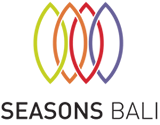Top 6 Ways To Keep Yourself Focused On Your Sobriety
So, you did it. You have taken the leap and decided that it was time to give sobriety a try. Maybe you have hit rock bottom, or perhaps you just decided that the relationship with alcohol was turning out to be quite an unhealthy one. Whatever the reason, you have taken it upon yourself to try abstaining from alcohol, which means diving into a whole new lifestyle that may be utterly unfamiliar to you.
Of course, if you ask anyone going through this process no matter at what point they may be at, 99/100 will express feelings of being overwhelmed at the beginning stages. These stages can be pretty scary at times, but it is essential always to know that you are not alone in any of these struggles. The move from a supported environment back to healthy living can be a very tough transition for many people. After leaving an addiction treatment rehab centre, for example, you may find yourself often being put in different trigger situations. In this newly found sober lifestyle, being open to different advice from others could be a huge help.
Here is a top 6 list that we comprised based off of all that we have found and that we preach to individuals every day:
Make sure this new lifestyle decision is your choice.
Probably one of, if not the single most crucial step of this process is to do it for the right reasons. Going into this with the mindset that you need to get it over with so you can tell everyone you did it is possibly the worst thing you could do and playing games like that with yourself can be hazardous and even in some cases, deadly. If you are trying to stay clean for the long haul, you must get away from your old routines, habits, and hangouts. Sometimes it is helpful for people new to recovery to make changes. It doesn’t matter what changes, just as long as it is different. Making these changes will help you prove to yourself that you are willing to take the necessary steps to go all-in and that you are focused on achieving this goal.

Have only healthy relationships
Like other addicts, you may have gotten to the point that the closest relationship that you had was with your drug of choice. It seriously could be that only “friend” you had left with the people you bought your drugs from or who you did drugs with coming in at a close 2nd. So, now that you are sober, you may have discovered that your past relationships were not only unhealthy but downright toxic. But, it’s not just your drinking buddies and drug dealers who can get you into trouble. Sometimes those who are closest to you can be the ones who have contributed the most. Family members, friends, or even employers who have been enabling you without even knowing it could all be possible. These things are essential for you to realise and have the discipline to make the right decisions concerning these things. As you may imagine, it would not be tough to believe that research has shown time and time again that if you maintain these types of relationships, your chances of relapsing are higher.
Learn more about preventing relapse
Those who are in recovery often say the best advice they could give to any newcomers is “go to meetings!” Obviously, by just going to meetings, things are not going to all of a sudden get easier and easier for you. We see that most who want to stay clean keep searching and find as many tools as they can to implement in their lives, along with keeping a good attendance at the AA meetings.

Occupy yourself, get a job
Recovering addicts frequently have problems meeting work-related responsibilities, maintaining employment, and managing their money. If you were active in your addiction for a period, chances are you have developed financial problems of some sort. Although returning to work could be stressful enough to set off a relapse trigger, it is essential as you return to the workforce that you use all the support you can find to help you maintain your goal of staying clean.
Become physically active
If you drank alcohol excessively and were addicted to drugs for any significant length of time, there is a good chance your health was affected. Chances are you are not in the best physical shape. Exercise and recreational activities can reduce stress, which can be a significant trigger for relapse. Physical activity can also reduce boredom, another relapse trigger. Maintaining a healthy diet and physically active lifestyle can restore a sense of balance in your life and therefore benefit you emotionally.
Let go of resentments of the past
Resentments are an obstacle that many addicts have to deal with in their recovery, and it can be challenging to address. If you are holding onto resentments in recovery, it can poison your relationships with others and ultimately undermine your recovery. To move forward, you need to quit thinking of the past. We know we know, it is easier said than done, but it is a necessary component in your recovery. Learning how to forgive is the primary way you can accomplish that goal. Forgiveness is of itself a significant speed bump in the simple fact that we harbour a lot of pain in what has happened to us in the past. We also stumble in learning how to forgive because we may not know the true meaning of the word. Forgiveness is totally up to us, and we have the power not to forgive someone if that relationship is unhealthy for you and your recovery.
Transformation Starts Here
Taking that first step towards recovery is one of the most powerful things you can do. If you or a family member need help and you want to get the best treatment possible, get in touch with us now. With over twenty years of helping people to find peace in recovery, we are South East Asia’s Leading Addiction Treatment Centre.





